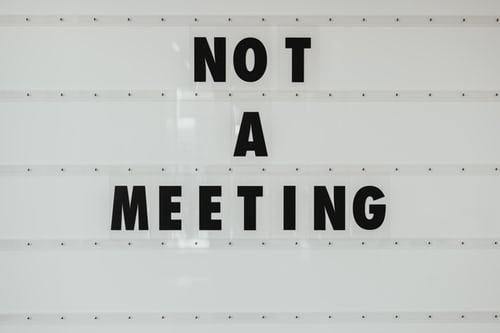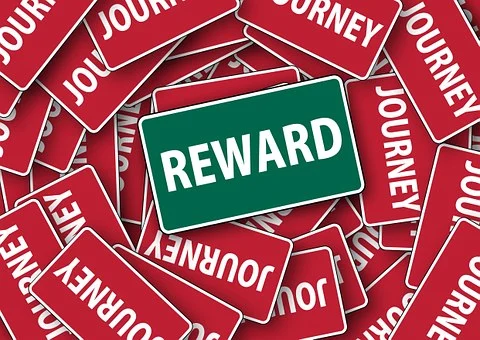
Always “on” = hidden need to prove oneself
Client talks about being “always on,” especially after work.
• Chronic restlessness
• Tension in her body
• Lying awake a lot
• Easily irritated

Every leader should talk about how AI is your co-worker or is your tool!
I agree with this article that ALL leaders have to ensure AI "does not happen to people" - they want to get involved in their upskilling, with 83% of workers wanting to take control of their skills development. Three questions that need to be answered:
Friday 23 January 2026 hits: 130
“Will your role still be around in five years?”
It’s a question I ask in every coaching program.
Because imagine AI changes your role — or even takes it over completely — would you be ready for the next step?
That’s why I give my clients one important assignment: create a Plan B.

I feel insecure about my 'smart' employee.
Do you also feel insecure about "smart" young employees? Misunderstandings arise from assumptions about each other's thoughts and actions. While some managers assert authority and others try to please, neither approach proves effective. True collaboration stems from equality, regardless of roles or experience. The first question is: What makes you feel insecure? I also advise managers to apply Reverse Mentoring as one of the solutions.
Thursday 20 March 2025 hits: 1721
Happy Discovery in 2025
Galileo Galilei wrote in 1600 :We cannot teach people anything; We can only help them discover it within themselves. This saying is still applicable today. Especially in coaching :-)!
Friday 27 December 2024 hits: 2853
Workplace wellness- less burnouts
When employees are put in a high-stress situation — whether from unclear expectations, unreasonable deadlines, or a hectic workspace — they are at risk of moving into fight or flight mode. This is something that happens to our bodies when we feel threatened. The primal, more emotional, parts of our brain takes over, and our ability to think long term, strategize, and innovate decreases. If we stay in this mode too long, eventually, we get burned out. Below read the 14 most important tips for managers to help prevent burn-outs.
Thursday 05 September 2024 hits: 4420
Why self-reflection works!
I agree with Irvin Yalom, when he says: ‘If we do not fully understand ourselves, we do not fully understand others and cannot create a full relationship, in life and work ‘.
Monday 27 May 2024 hits: 7252
Away Day Theme
I hear very often that the Away Day was boring and not inspirational enough. My suggestion is to talk about what really makes us tick and helps us to develop:
Friday 17 November 2023 hits: 11244
People with mentors perform better.
I advise my clients to find a mentor. Now I read in HBR that research shows that people with mentors perform better, advance in their careers faster, and even experience more work-life satisfaction. And.. the mentors benefit too.
After all, “to teach is to learn twice.” Despite all these benefits, and even though 76% of working professionals believe that a mentor is important to growth, more than 54% do not have such a relationship.
The problem is often that people don’t know how to find a mentor or establish a relationship. The following steps can help.

Leadership isn’t about your job title. You don't need to be the boss to be a leader.
My client says that she is impatient and compelling and does not realize her goals with her team. You don’t need to be the boss to be a leader says this article and I agree.
Here are three actions you can take to hone your leadership skills right now and become a highly respected and influential team member.

6 Reasons to embrace procrastination
Here are six reasons why you shouldn’t worry about putting off to tomorrow what you could do today:
Monday 27 March 2023 hits: 12432
F/M: It makes a difference who conducts the interview.
This article was sent to me and I like to share it because I recognize that we tend to project and ask questions according to our own preferences.
Tuesday 31 January 2023 hits: 13693
6 Tips for Women Working in Male-Dominated Fields
Very often I discuss with women the imposter syndrome when they are in doubt about making a next career step. Research shows, When it comes to gender equality in the workplace, organizations are keeping a slow — and I do mean a very slow— and steady pace.
Wednesday 25 January 2023 hits: 24324
10 Signs Your Ego is in Control
We talk about Ego when clients experience issues in collaboration. The first step is awareness – you need to start to become aware of when you’re ego is playing up so you can stop it before it’s too late! 10 signs:
Tuesday 01 November 2022 hits: 151813
Conflicts and irritations at work
Jumping to conclusions is a common reason for conflicts and irritation. And a very common issue to be discussed during the coaching. When we jump to conclusions, we make unwarranted assumptions based on limited information. This type of thinking allows us to make decisions quickly, but it also means that these decisions are quite often wrong. We think we can tell what others are thinking without having any evidence to back up those often-negative assumptions. Or we are so convinced of our right and beliefs that we project our beliefs onto others. How to Reframe Your Conclusions?

Extrinsic motivation will drain our energy!
My client realized that his burn-out was over the years a result of his extrinsic motivated and driven behavior.
Monday 11 October 2021 hits: 17178
How to Talk About Your Mental Health with Your Employer
I hear from more than one client lately that they find it very difficult to talk about their mental health at work. I read the following:

Breaking the loop of Procrastination & Perfectionisme
My client knows that she irritates others with her procratination. She wants an insight in this habit. We analyzed to see if her perfectionism created a loop. Because she has a fear of being unable to complete a task perfectly, she puts it off as long as possible. Her assumptions and convictions:

Self-doubt after career break? Reframe!
My client was a Stay-at-Home mom for 7 years. She doubted if she could go back into the job market, working at the same level as she did when she left it. Her doubts were mostly based on assumptions and not based on reality checks.
Page 1 of 3




